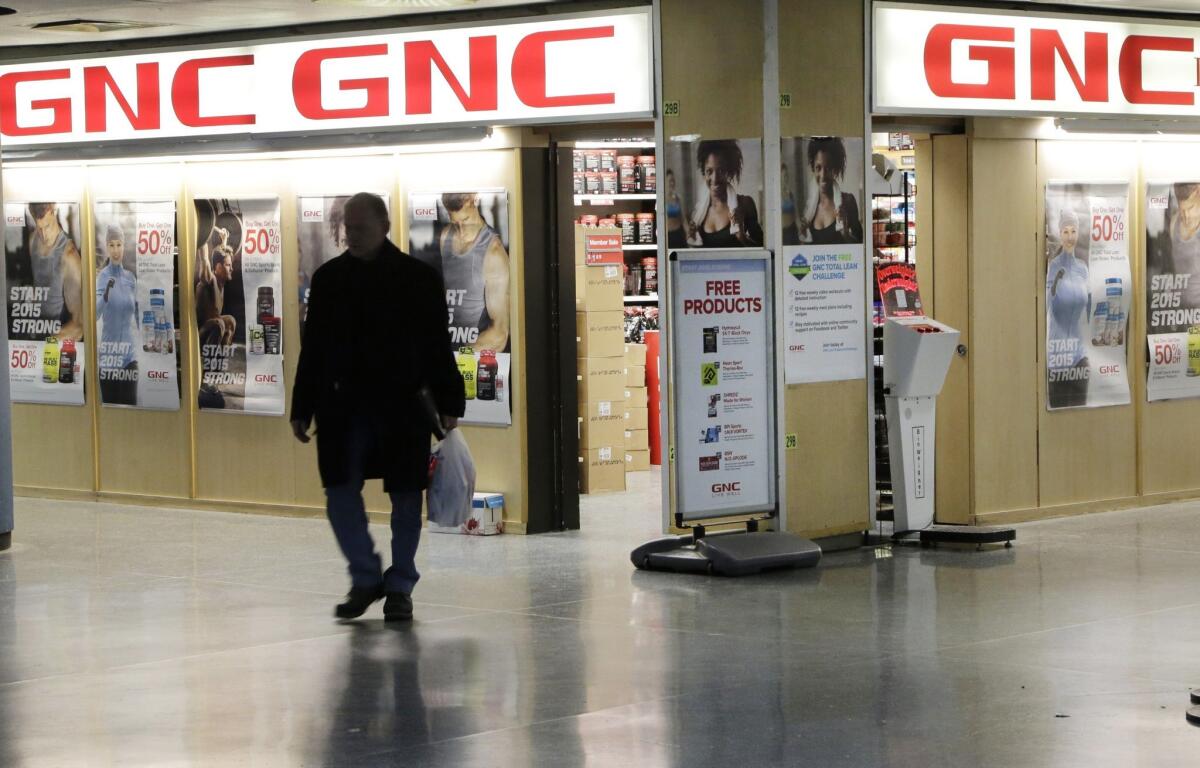14 states ask Congress to investigate the herbal supplement industry

A GNC store in New York on Feb 3.
- Share via
Attorneys general from 14 states are calling on Congress to investigate the herbal supplements industry after a report from New York’s top prosecutor that alleged many products contained ingredients that were not listed on their labels and that could pose serious health risks.
The group, led by New York Atty. Gen Eric T. Schneiderman and Indiana Atty. Gen. Greg Zoeller, asked Congress to give the Food and Drug Administration more authority to oversee the industry.
“We believe the safety and efficacy of these supplements is a matter of deep public concern across the country. We therefore urge you to take swift action,” the attorneys general said in a letter Thursday to lawmakers.
California Atty. Gen. Kamala D. Harris was not among the 14 top state prosecutors in the group.
The industry’s Natural Products Assn. characterized the letter as “added harassment based on science fiction” and said more oversight of the industry wasn’t necessary.
“The FDA is properly equipped to identify and go after firms that pose a threat to public health,” said the trade group’s chief executive, Daniel Fabricant, who is a former director of the FDA’s division of dietary supplement programs.
In February, Schneiderman sent letters to General Nutrition Corp., Target Corp., Wal-Mart Stores Inc. and Walgreen Co., demanding that they stop selling their store-brand herbal supplements.
His office alleged that 79% of products tested from the four retailers had no DNA of the plants listed on the labels or were contaminated by wheat, pine, rice, beans and other materials.
Schneiderman’s testing method -- DNA bar-coding -- was criticized by the supplement industry and outside experts.
In a settlement Monday, Schneiderman’s office cleared GNC to sell some of its most popular products, including echinacea, ginseng and St. John’s Wort.
State investigators found “no evidence” that GNC had deviated from Food and Drug Administration standards or from standard industry practice in producing the supplements, according to a letter Schneiderman sent to GNC’s chairman, Michael Archbold.
However, the two sides continued to disagree on whether federal rules, which don’t require DNA-based testing to authenticate herbal supplements, are sufficient.
GNC said its own testing had shown that its store-brand herbal supplements were “safe, pure” and “properly labeled.”
Under the settlement, GNC agreed to expand its testing, including the use of DNA bar-coding.
Follow me on Twitter: @khouriandrew
More to Read
Inside the business of entertainment
The Wide Shot brings you news, analysis and insights on everything from streaming wars to production — and what it all means for the future.
You may occasionally receive promotional content from the Los Angeles Times.











